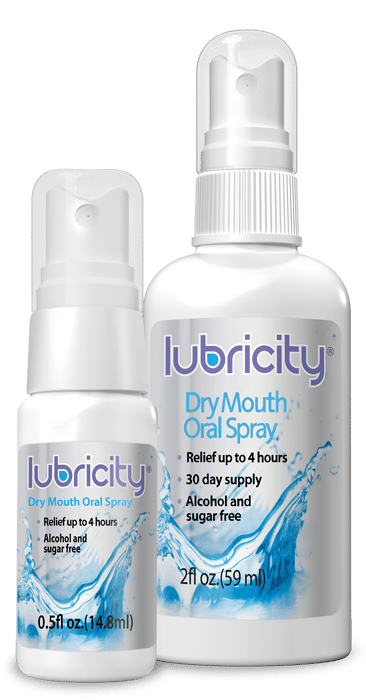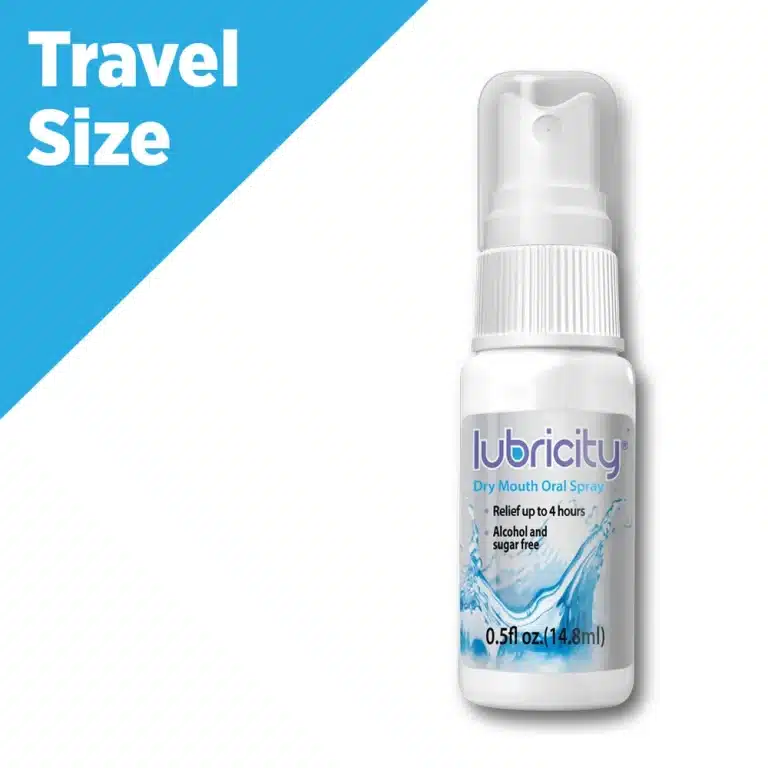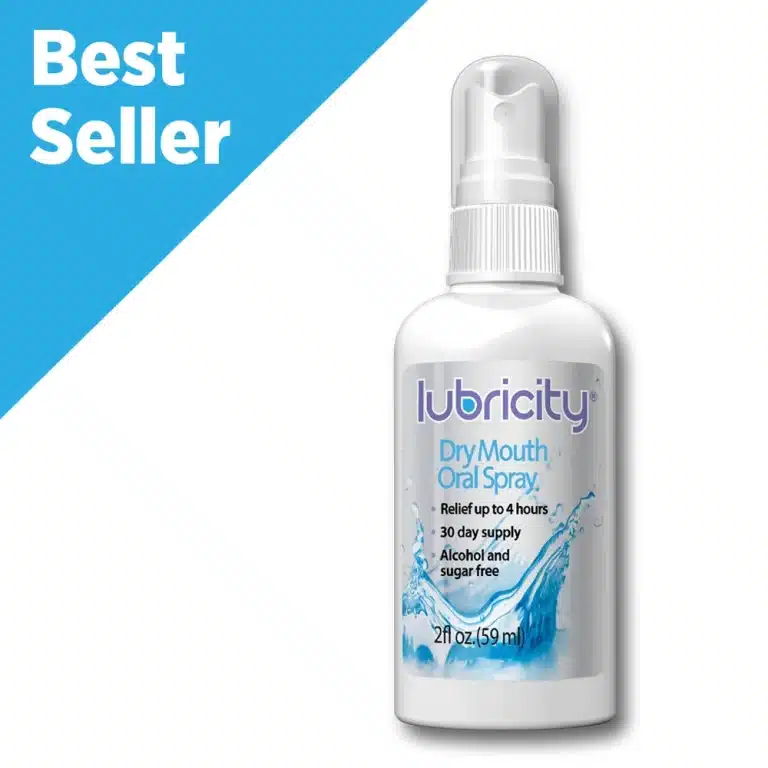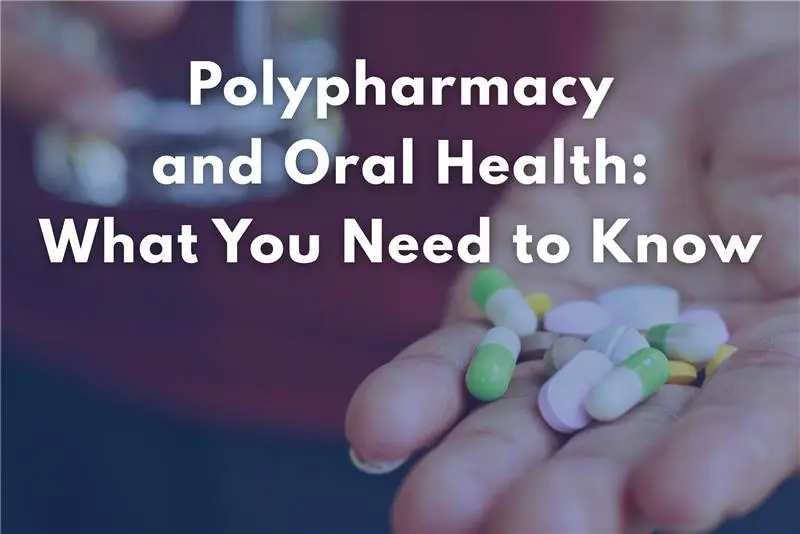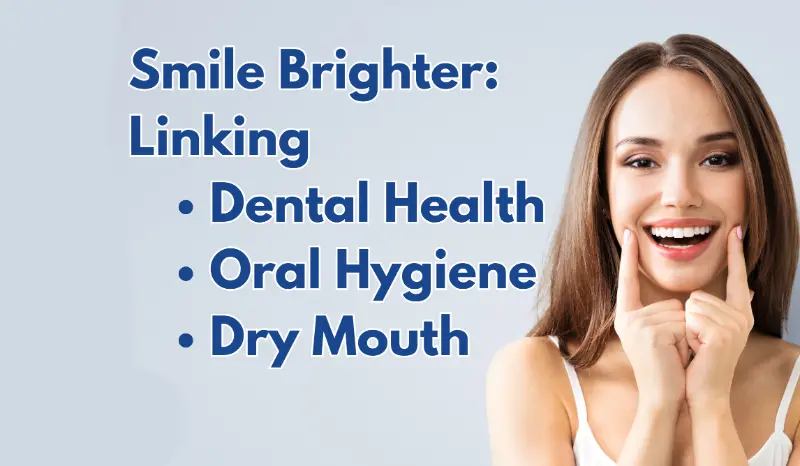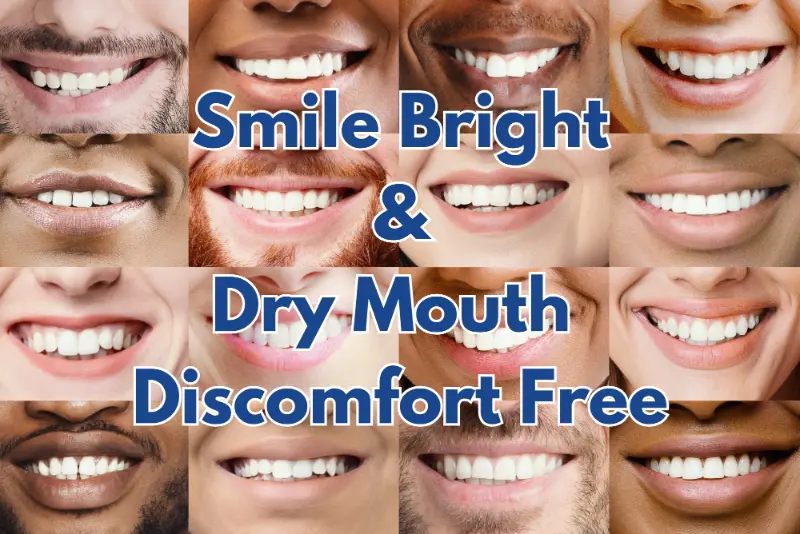What is Lubricity
Lubricity, an innovative oral spray, is scientifically designed to provide much desired comfort and relief to those suffering from symptomatic xerostomia.
Sodium Hyaluronate, also known as Hyaluronic acid and a natural lubricant, distributed widely throughout soft tissues and joints of the human body, is the main ingredient. Lubricity forms a flavorless gel film that coats the oral mucosal tissue for a long lasting, superior tissue on tissue lubrication. With effects lasting up to 4 hours, this unique formulation provides significant improvement in the quality of life of those suffering from chronic persistent dry mouth symptoms.
How Lubricity Works
FDA Cleared & Clinically Proven
Hyaluronic Acid Extracted from
Plants
Plant-Based Form of Hyaluronic Acid
HA is also found in the gums and periodontal ligaments, contributing to their structure and function and can permeate the deeper dermal layers which means it not only hydrates at deeper levels but has wider health-supporting effects.
Hyaluronic acid increases hydration in connective tissues throughout the body. Once absorbed, hyaluronic acid is broken down into smaller fragments before migrating to the skin, tissues, joints or wherever it is needed. Hyaluronic acid (HA) can be beneficial for mouth tissues, particularly the gums, as it naturally occurs in oral tissues and has properties that promote healing, reduce inflammation, and enhance tissue hydration. This makes it a potential treatment option for conditions like gingivitis, periodontitis, and mouth ulcers when applied topically as a gel or rinse; essentially acting as a protective barrier and aiding in faster wound recovery. It plays a major role in tissue regeneration. By attracting and retaining moisture, HA can help keep the oral mucosa hydrated and alleviating dryness and discomfort.
The antioxidants in strawberries, such as ellagic acid, help combat inflammation and oxidative stress in the oral cavity. This can contribute to the prevention of gum disease by reducing inflammation and supporting overall gum health.
Xylitol
Extracted from
Birch bark
Natural sugar extracted from birch bark Xylitol
Oral flora cannot metabolically process Xylitol, reducing the growth of mutans streptococci, the group of bacteria responsible for dental caries formation. In this sense, the substitution of Xylitol for sugar in food along with its incorporation in dental care products has a considerable impact on dental health.
This useful sugar alcohol reduces the adhesion of these tiny bacteria to the teeth surfaces, thus preventing their harmful effects. Like any other sweetener, xylitol increases salivary flow which can help combat dry mouth.
Xylitol research findings:
What Sjögren’s Patients should understand!
Research Findings on Xylitol
xylitol in the post-radiotherapy xerostomia
Discover More & Stay Connected
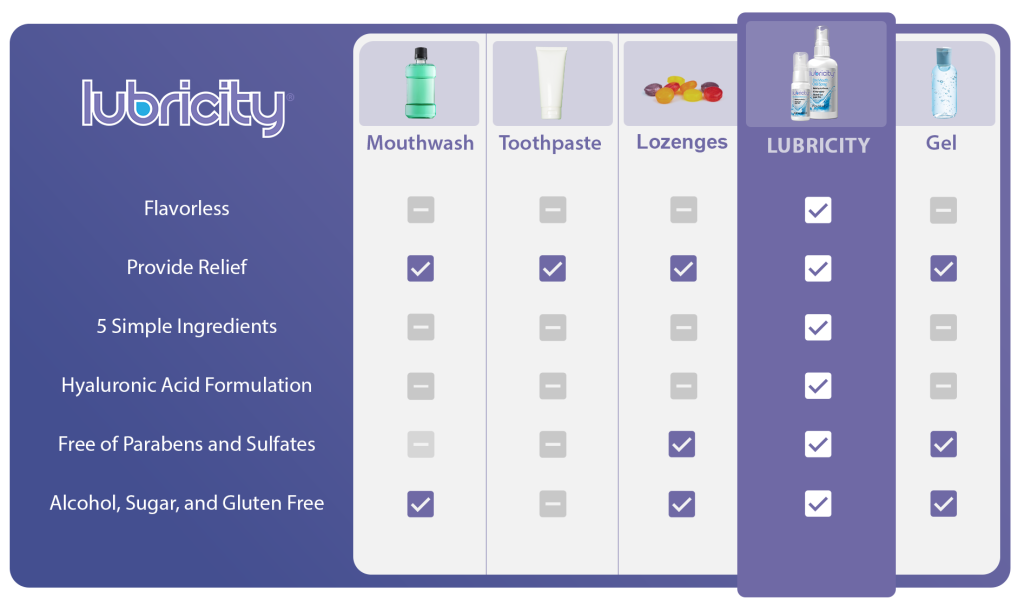
Shop Now!
Important Safety Information for Lubricity®
INGREDIENTS: Water, Xylitol, Sodium Hyaluronate, Sodium Benzoate, Potassium Sorbate.
MECHANISM OF ACTION: Lubricity is a hyaluronic acid-based saliva substitute developed to hydrate and lubricate the oral tissues of the mouth, tongue, and throat. It forms a gel-like film that reduces water loss and restores the viscoelastic properties of the oral mucosa.
INTENDED FOR USE: Lubricity is intended to alleviate symptoms of chronic and temporary dry mouth (xerostomia), which may arise from conditions such as Sjögren’s Syndrome, medication use, chemotherapy, radiotherapy and other medical issues. Additionally, Lubricity helps relieve other dry mouth-related difficulties, including challenges with swallowing and speech.
Further, Lubricity helps protect against inflammation of the oral mucosa. Dry mouth can negatively impact both the oral cavity and overall quality of life. Contains NO
alcohol, parabens, sugar, or saccharin. Gluten Free and Vegan Friendly.
PRECAUTIONS: Lubricity Xtra should not be used by individuals with a known history of hypersensitivity to any of its ingredients. It is intended for use only by individuals aged 18 and older. Keep out of reach of children and pets.
Carefully review the included package insert before using this spray. Avoid contact with the eyes; if accidental exposure occurs, rinse thoroughly with water. Do not use it if the plastic safety seal is broken or missing.
There are no reported interactions with medications or other products. However, if you notice redness or soreness of the mouth tissue, stop using it immediately and consult your doctor, as this may indicate an allergic reaction. Lubricity is intended to alleviate dry mouth symptoms.
DIRECTIONS FOR USE: Shake well before use. Administer one dose (3-5 sprays) directly into the mouth. Use after breakfast, lunch, dinner, and prior to bedtime. With the help of your tongue, distribute the product over the mouth. Note that spray pumps may need to be primed before their first use.
NET CONTENTS: 0.5 ounces and 2.0 ounces of Lubricity (depending on size), Bottle, Sprayer.
Manufactured by: YouFirstServices, Inc.
Lubricity Innovations
485 Cayuga Rd.
Buffalo, NY 14225
Lubricity® is FDA cleared and is a medical device registered with the United States Food and Drug Administration.
Explore Blogs & Learn More
Blog
Blog
Blog


